Despite the simplistic distinction between North and South which dominates the media, Sudan, even after the split, is a multi-ethnic country. While it might not be visible in rural areas along the Nile, the capital, like a magnifying glass, shows the enormous complexity and rich mixture of the population. Khartoum is unusual by many means. First of all, it’s location at the place where Blue and White Nile merge their waters together, make it rather a cluster of three cities than one single being. Khartoum, Omdurman and Bahri, separated by broad branches of Africa’s biggest river, show distinct atmosphere and look. All of them, however, are inhabited by broad variety of human races.
Arabs, whites and the first really black African people that I have met on my way make up for the majority of the population, but Chinese and other Far East Asians are common sight here. Mostly due to huge economical involvement of China in Sudan. So significant, that many times I was greeted by children shouting “Ni hao!”, a Chinese equivalent for “hello”.
The city consists of drab concrete blocks, huge villas with lush gardens, as well as of slum dwellings surrounded by sand and rubbish. Even in the rich neighborhoods dark-skinned women sit under trees with their small tables. The institution of chai mama – a woman ready to prepare any kind of herbal drink in few seconds – is something that keeps the country going, or rather, helps it to survive the noon hours of extreme heat.
While there is a lot of poverty, the city is generally considered safe and relatively free of violence. Even the poorest seem to be content of living in the capital, where fresh water is available and work can be found, in a sharp contrast to their dry and war-stricken homelands on the edges of the huge country.
Sudan resembles US in some way: it is fighting at least three wars in the same time. Beside the most known North-South and Darfur conflicts, there is another one going in the Nuba Mountains. While all of them have been rather de-escalating last years, the influx of refugees still continues. Also, although dominated by Islam and ruled by sharia principles, Sudan still hosts a big Ethiopian community, which practices their religion freely.
As well as the human landscape seems exotic to me, the nature on the other side of Sahara is full of novelty. First big trees I have seen in months are mostly mangoes, but also a plenty of others, whose names are a mystery for me. My favorite is a tree from which huge cucumber-like fruits hang on few meter long ropes.
At the first sight Khartoum may seem uninteresting. With strict Islamic rules there is not much of entertainment (although women seem to cover less than in much more free Egypt). However, two weekly events are worth visiting, although they happen at the same time in very distant places. Every Friday a crowd of Sufi Muslims gather at Omdurman cemetery to dance for Allah. Their colourful clothes and faces, together with trance they induce on themselves by music, movement and incense, make this an unforgettable event.
On the other bank of the Nile, in former refugee camp of Hajji Yousuf, Nubian wrestlers come out to a sandy arena for duels in the evening sun. That activity is less saint and involves bets made by spectators, but is no less impressive.
Half of the time I spent in a lovely Youth Hostel, half being hosted by Mark, whom I found by CouchSurfing. Having spent many months there as English teacher, he knows the city perfectly and has a wide circle of expat friends. Soon I learned that in a dry country the embassies take care – officially or not – to provide a supply of booze. After five months during which I consumed less beers than I have fingers, not to mention anything stronger, a sip of gin & tonic was just delicious.

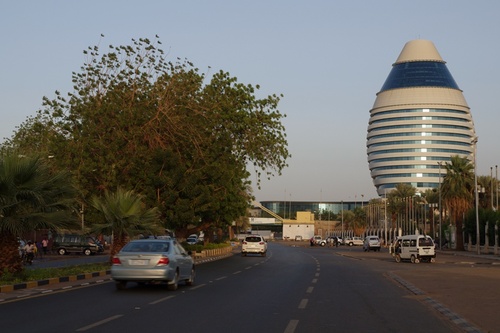
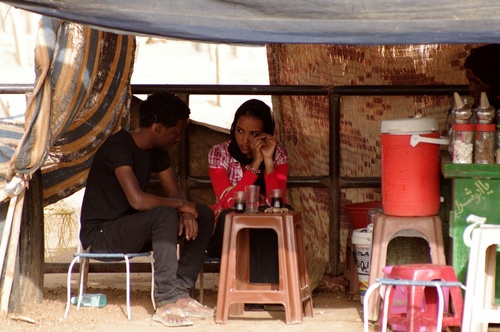
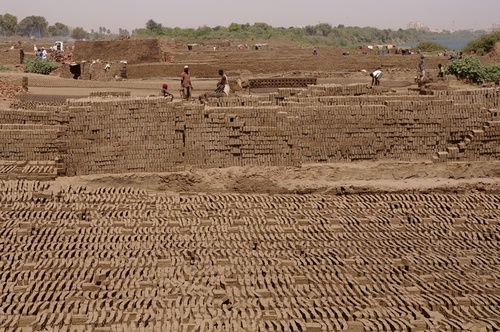
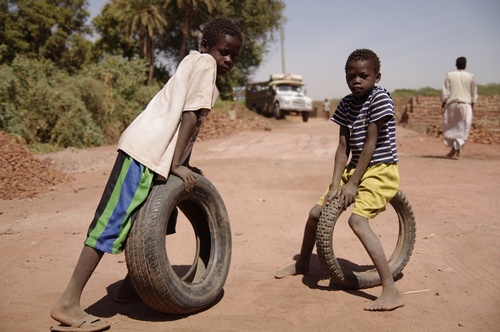
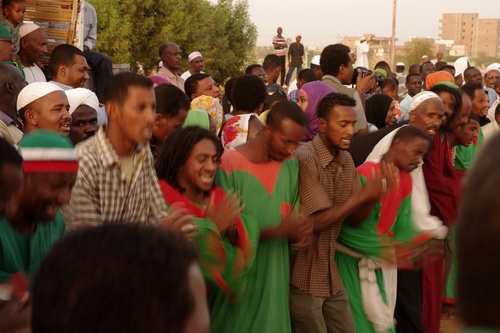
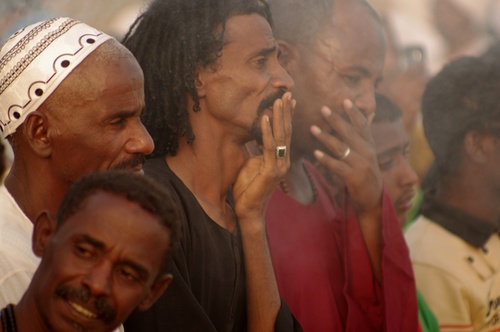
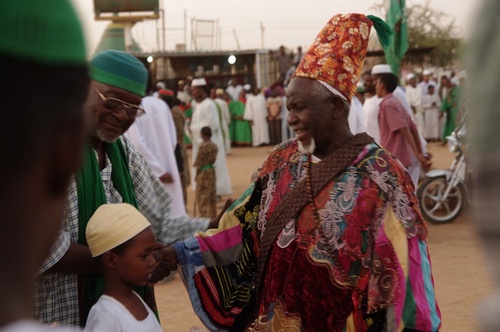
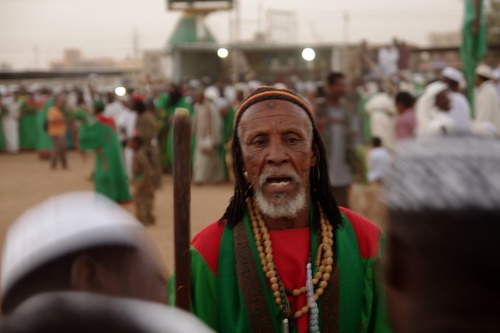
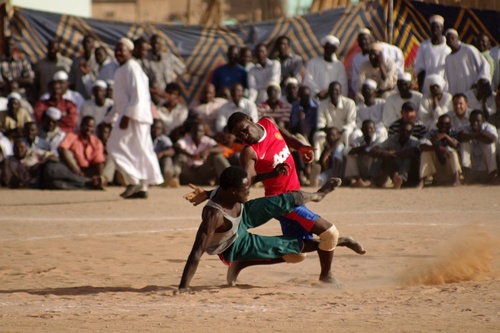
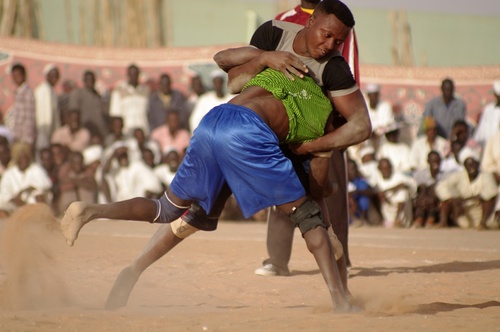
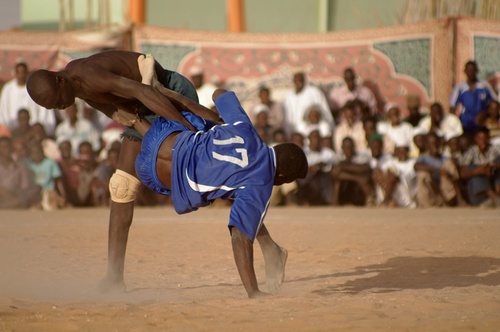
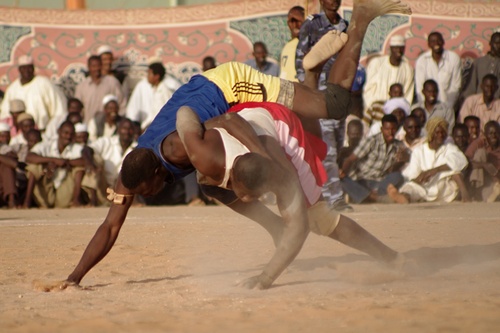
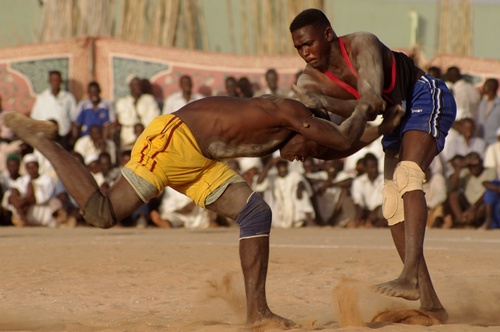
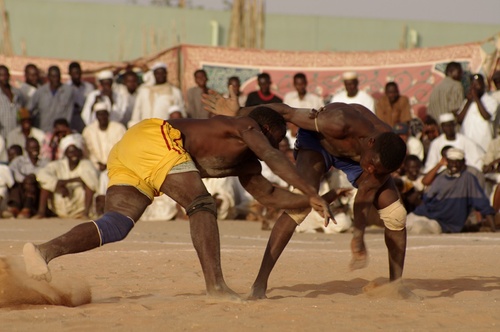
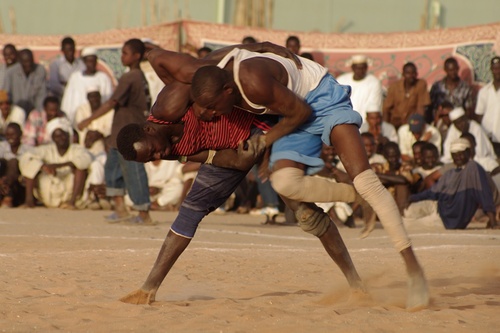
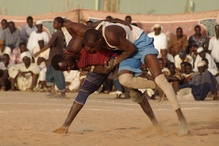
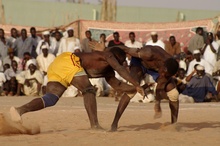
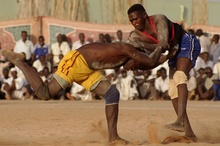
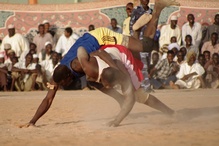
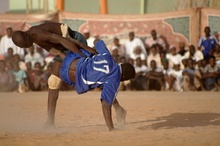
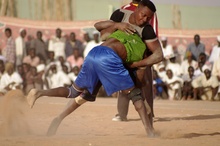
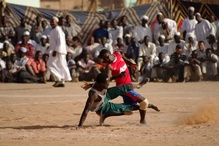
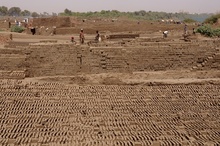
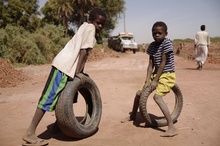
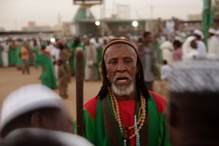
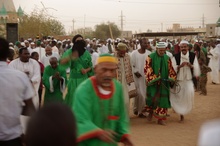
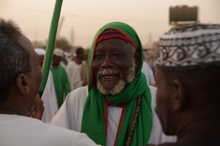
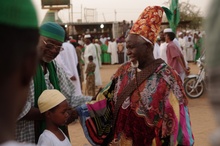
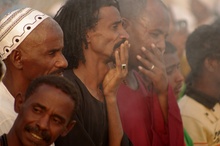
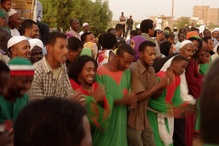
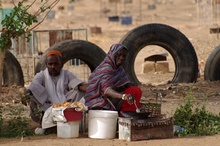
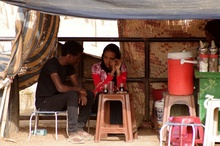
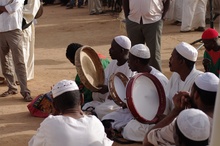
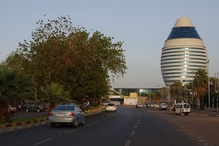
Comments:
Jesio
Czytam od początku, podziwiam i marze...
Pozdrawiam i powodzenia w dalszej drodze...